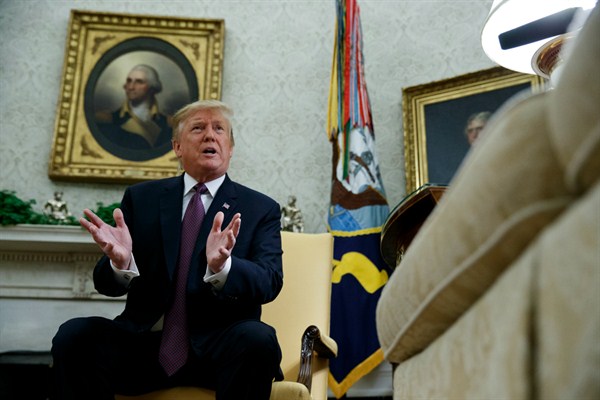While campaigning for U.S. president, Donald Trump sold himself as a great negotiator who would get tough and get things done. That image took a big hit after Trump’s capitulation to Congress over his needless government shutdown earlier this year, and his failure to get additional funding for his border wall. It took another hit last week when three of Trump’s foreign policy priorities suffered setbacks: Iran announced that it would stop adhering to some provisions of the international deal curbing its nuclear program; North Korea resumed ballistic missile launches; and Beijing reneged on commitments aimed at resolving the U.S.-China trade war.
To underscore his apparent toughness, Trump took new punitive actions against each country. But a resolution of the underlying problems in all three foreign policy negotiations remains elusive. If anything, they could get much worse.
The Joint Comprehensive Plan of Action, as the Iranian nuclear deal is formally known, aimed to prevent Iran from developing a nuclear weapons capacity, which, when the deal was struck in 2015, was thought to be no more than a year away. The agreement required Iran to take steps, subject to close monitoring by the International Atomic Energy Agency, that would foreclose that possibility for more than a decade. In exchange, Tehran was supposed to get relief from crippling economic sanctions.

